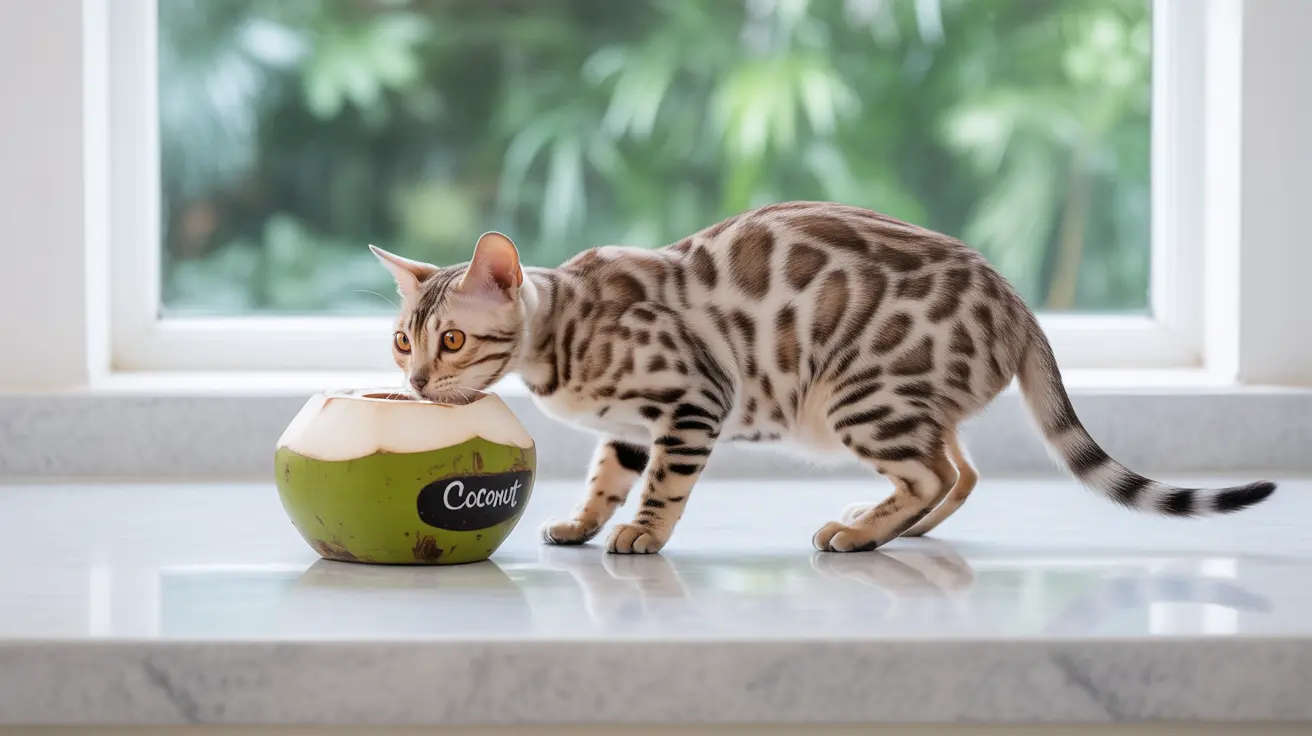Safety Considerations for Cats and Coconut Water
When it comes to coconut water safety for cats, moderation is key. While a few laps of pure coconut water won't typically harm a healthy adult cat, there are several important factors to consider:
- Cats don't require coconut water for nutrition or hydration
- Commercial coconut water often contains added sugars and preservatives
- The high potassium content could be problematic for some cats
- Fresh, clean water should always be the primary source of hydration
Potential Risks of Coconut Water for Cats
Before offering coconut water to your cat, be aware of these potential risks:
- Digestive upset, including diarrhea and vomiting
- Electrolyte imbalances from excessive potassium
- Weight gain due to natural sugar content
- Possible allergic reactions in sensitive cats
- Complications for cats with kidney problems
Benefits vs. Drawbacks of Coconut Water for Cats
While coconut water does contain some beneficial compounds, the drawbacks generally outweigh any potential advantages for cats:
Limited Benefits
- Natural electrolytes
- Some antioxidants
- Mild hydrating properties
Significant Drawbacks
- Unnecessary additional calories
- Risk of digestive issues
- Potential for electrolyte imbalances
- No proven health benefits for cats
Guidelines for Serving Coconut Water to Cats
If you decide to offer your cat coconut water, follow these important guidelines:
- Only give small amounts (1-2 teaspoons maximum)
- Use only pure, unsweetened coconut water
- Monitor your cat for any adverse reactions
- Never replace regular water with coconut water
- Consult your veterinarian first, especially if your cat has health conditions
When to Avoid Coconut Water
Some cats should never be given coconut water, including:
- Kittens under one year old
- Cats with kidney disease
- Diabetic cats
- Cats with digestive sensitivities
- Overweight cats
- Cats with known allergies or sensitivities
Frequently Asked Questions
Is coconut water safe for cats to drink, and how much is considered a safe amount?
Coconut water is generally safe for healthy adult cats in very small amounts (1-2 teaspoons maximum). However, it should only be given occasionally as a treat, not as a regular part of their diet.
What are the potential health risks of giving coconut water to cats regularly?
Regular consumption of coconut water can lead to digestive issues, electrolyte imbalances, weight gain, and potential complications for cats with kidney problems. The high potassium content can be particularly problematic if consumed frequently.
Can coconut water replace fresh water as a primary source of hydration for cats?
No, coconut water should never replace fresh, clean water as your cat's primary source of hydration. Cats need regular water to maintain proper health and hydration levels.
Are there any benefits of coconut water for cats' health or hydration?
While coconut water contains some electrolytes and antioxidants, there are no proven health benefits for cats. Any potential benefits are minimal and can be better obtained through a proper diet and fresh water.
Should kittens be given coconut water, or is it only suitable for adult cats?
Kittens should not be given coconut water. Their digestive systems are sensitive, and they require specific nutrition from their mother's milk or appropriate kitten formula. Only introduce coconut water to healthy adult cats, if at all.
Remember, while coconut water isn't toxic to cats, it's not necessary for their health and wellbeing. Always prioritize fresh water and a balanced, veterinarian-approved diet for optimal feline health.






